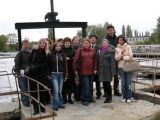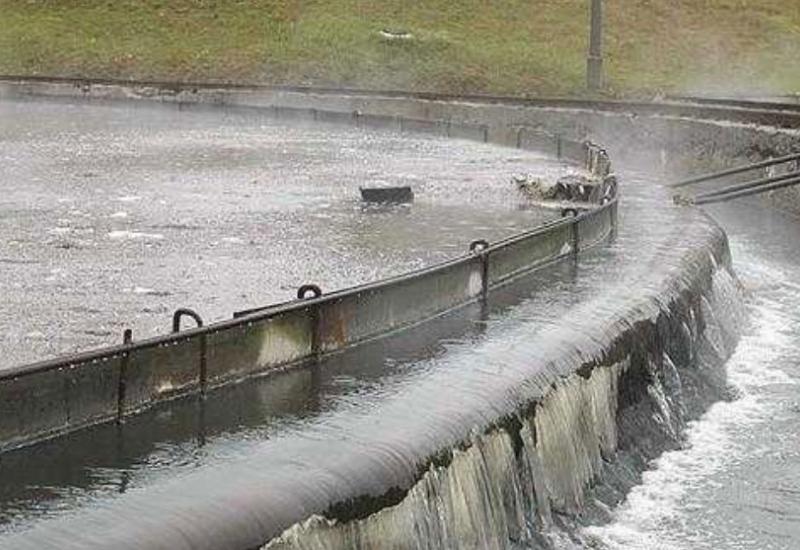Recently in the media was proclaimed about biological treatment of water as scientific and technical achievements of the last 150 years, which brought the greatest benefit to people.
At first glance, this statement is too exaggerated, because by this time there were planes and missiles, radio and television, antibiotics and vaccinations, computers and mobile phones, it came to deciphering the human genome and organ transplants. However, further deep analysis forced to admit that without biological treatment process of only domestic sewage water, all surface water of the planet would be so polluted that we would not even dream about safe drinking water. Without water, 6 billion people would not have survived and there would be no question of the above achievements.
Biotechnology of the water treatment is the most developed part of the overall science, which we called “biotechnology of the water”. By weight of draw materials (contaminated water), which is processed, as by weight of the final product – purified water – this technology dominate between all taken together technologies known to mankind such as: mining technology, cultivation of agricultural products and processing. The British estimated that in the UK more water is biologically cleaned overnight, than other biotech products are produced – ale, whiskey and other alcoholic beverages, cheese, bread, milk, antibiotics, organic acids, vitamins, interferons, etc. during the year.
 Using so far generally microorganisms, biotechnology of sewage treatment essentially, so to speak - ideologically, differs from all other microbic biotechnologies. Such state of affairs has the objective basis. Firstly, a chemical composition of a substratum (sewage) with which deals our biotechnology, is incredibly complex, multicomponent and unpredictable. Secondly, all microorganisms existing in the nature from which it needs to be exempted get to sewage. Thirdly, physical and chemical parameters (temperature, рН, the oxidation-reduction potential, quantity and structure of the weighed substances, etc.) fluctuate. Fourthly,biotechnology water treatment removes all of this water other than water - organic compounds (including xenobiotics), heavy metals (including radionuclides), the most part of compounds of nitrogen and phosphorus, live and dead organisms is set for biotechnologies of sewage treatment (including what took part in purification of this water)...
Using so far generally microorganisms, biotechnology of sewage treatment essentially, so to speak - ideologically, differs from all other microbic biotechnologies. Such state of affairs has the objective basis. Firstly, a chemical composition of a substratum (sewage) with which deals our biotechnology, is incredibly complex, multicomponent and unpredictable. Secondly, all microorganisms existing in the nature from which it needs to be exempted get to sewage. Thirdly, physical and chemical parameters (temperature, рН, the oxidation-reduction potential, quantity and structure of the weighed substances, etc.) fluctuate. Fourthly,biotechnology water treatment removes all of this water other than water - organic compounds (including xenobiotics), heavy metals (including radionuclides), the most part of compounds of nitrogen and phosphorus, live and dead organisms is set for biotechnologies of sewage treatment (including what took part in purification of this water)...
Water becomes soiled more intensively. It is known that there are two components in modern anthropogenous water purification: quantitative and qualitative. The quantitative component is caused by essential, and recently by nearly exponential increase in number of the population on Earth. This is result of the first opposition of the person and the Biosphere when the primitive person-consument (consumer) seized fire and became also extremely active destructor - the burner of organic substances. This event ennobled the Human over all other fauna, opened her really unlimited opportunities - from settling on all globe to " the conquest of space ", and caused mad pollution of the soil, air and, of course, water both physiological, and production waste.
The second - qualitative component of environmental pollution is connected with opposition of the person, the second for age, and Biospheres when the Person - an initial consument and evolutionarily acquired destructor - became also a producer, that is synthetic of various chemical compounds - from nitroglycerine to dioxine. This improvement of our life appeared quite recently because only half century led to the improvement of our everyday life (is it possible to imagine modern life without, for example, chemical polymers?!), but chemical synthesis dramatically and drastically changes (of course to the worse) environment.
“Myrgorod is not the same, Horol is not the same river as it used to be” – said poet. Sewage that are now as they used to be 100 years ago. At that time nobody had concept about synthetic detergents, there were no pesticides (herbicides, insecticides, fungicides), synthetic antibiotics and physiologically active agents, there was no such word "xenobiotic" even. In addition, all these new chemical compounds in the increasing quantity (on 1000 and more names annually) go on sale, on the use, and it means on water. The biota of Earth is not ready to their consumption, transformation, destruction and mineralization. The traditional biological treatment facilities that work on technology of the end before last and of the beginning of the XX centuries, are not capable to clear new sewage (even household) to desirable quality of water. Fresh ideas, front lines - high - biotechnologies are necessary. The modern science opens such opportunities, and process engineers, without wasting time, use them. Only for the last two-three decades perspective processes with use of anaerobic active silt are developed, anammox - bacteria, which anaerobically oxidize the ammonia, "Biokonveer" that provides restoration of quality of the become obsolete water when using a wide range of hydrobionts.
The people working at biological constructions on sewage treatment at all the ordinary and conventionalism, can't but realize nobility of the work, its importance, absolute vital necessity.
Observing as sewage - dirty, muddy, smelly, opposite swill on your eyes becomes transparent, life-giving, clear water to be involved in this surprising biological process, to have a direct bearing, moreover - to operate this biotechnologies, constantly, daily to carry out such wonderful transformations is really fascinating, charitable, charitable business. Therefore no wonder that students who chose the future specialty of ecobiotechnology (chair of ecobiotechnology and bio-energetics), already on 2-3 courses show interest in researches of biological sewage treatment. So, students of the 4th course of chair of ecobiotechnology and bio-energetics Ekaterina Shchurska and Irina Samarukha within preparation of work on degree of the bachelor of ecobiotechnology try the forces in difficult business of release of water from synthetic detergents under the leadership of professor P.I.Gvozdyak.
Nov 12, 2007 || By P.I.Hvozdyak, PhD, professor of ecobiotechnology and bioenergy N.B.Holub, Ph.D., assistant professor of ecobiotechnology and bioenergy

